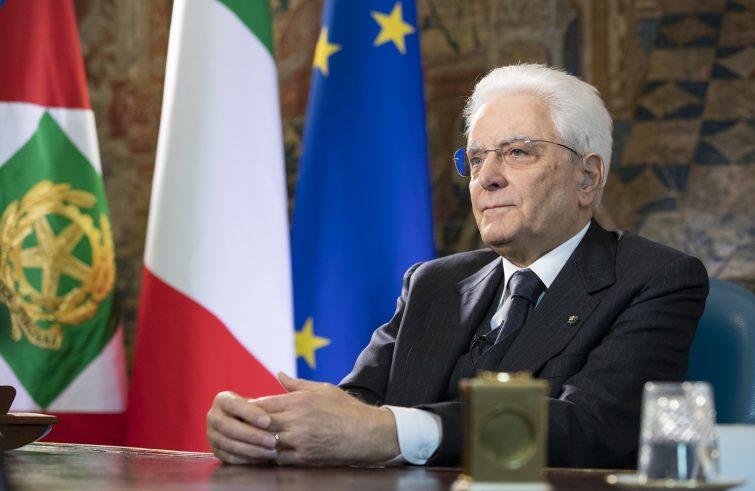
“We will overcome this difficult moment together.” The Head of State never misses an opportunity to point this out. Together. President Mattarella reiterated this message in the note published on the Quirinale’s website in response to countless e-mails. The momentous emergency situation we are facing today can only be overcome together. It’ s not a question of do-goodism. It’s sheer realism, besides being in harmony with the founding values of our Constitution. This common spirit of unity is sorely needed at a particularly challenging stage of the emergency situation we are experiencing. While relatively positive signs are emerging with regard to the spread of the epidemic (although the number of deaths is horrifying), the social burden of the severe measures taken to contain the contagion is starting to weigh more severely. And we must stay on the ball, because, as the Prime Minister pointed out announcing the extension of the lockdown until 13 April, we risk thwarting the enormous efforts that have been made so far and which have yielded important results. Yet collective psychological and moral resilience is at stake, and many people are contributing enormously – from the voluntary sector to Christian communities, while the political world and its institutions are sending out conflicting signals.
At parliamentary level, majority-opposition dialogue is, all in all, holding up. Conte’s meeting with the leaders of the centre-right coalition was not successful, but neither was it a failure. A half-full glass, so to speak. The decree that cuts income tax (the so-called tax wedge) has been converted into law with the abstention-vote of opposition parties. An absolute majority vote will soon be required to authorise a new budgetary slippage, given that the government is planning new, more robust measures to stem the economic consequences of the epidemic, implying an increase in government debt.
MPs gave their unanimous approval in the previous vote. Given Parliament’s organisational difficulties, some form of collaboration between political groups is essential in order to avert parliamentary deadlock.
On the other hand, the public debate, fuelled by traditional and web-based media, is strongly polarized, with opposition parties never missing an opportunity not to criticize the government – even though it has made mistakes – but to de-legitimize it by constantly accusing it of incompetence. The paradox being that these accusations are made by the very parties that championed the illiberal move that granted Hungarian President Orban sweeping powers, thereby crushing potential opposition. Worse still, people sometimes surrender to the temptation of fanning the flames of social discomfort even in an extremely difficult situation.
Regions are an equally problematic front in their controversial attitude towards the central government from the outset, despite the fact that they are directly responsible for health matters and therefore also bear political responsibility for what happens in healthcare.
Naturally, a distinction must be made from one situation to the next. While a couple of regions led by the centre-left coalition stirred the greatest amount of criticism, it is quite evident that the centre-right is trying to manipulate local institutions to undermine Conte’s government.
Unfortunately, catchphrases such as : we’re taking care of everything, we’re doing it alone, we’re only doing it well, etc., lead nowhere and end up overshadowing the value of concrete actions and their results, in some cases close to miraculous (our thoughts go to the hospital built in ten days at the Fiera Milano). Let’s take the case of Lombardy, a region that today is in the heart of all Italians and which certainly does not need political opposition while heroically fighting against the epidemic. By dint of constantly raging against Rome, the steps taken by its political leaders are now being questioned as compared to the neighbouring Veneto region, which, despite also being led by a League party member, has adopted a markedly different strategy, and must respond to a letter written by seven centre-left mayors, including those of Milan, Brescia and Bergamo, posing a set of serious questions to city Council, on which the health system of the region most affected by the coronavirus depends. If you do the crime, you have to do the time, some might argue, but that kind of political retribution rule will bring no good to the people of Lombardy and the whole country. The emergency can only be overcome together.
With regard to the government, its core policy appears to be increasingly supported by the facts, and even the implementation of a “national seroprevalence survey” for the detection of antibodies marks an adjustment in the course of action, indicating pragmatism and proportionality.
The same caution characterising the when and how to restart is dramatically confirmed in news reports from China of a new large-scale home confinement.
Recurring controversies regarding the need to act sooner should also acknowledge the fact that while Italy reported thousands of deaths, the President of the United States of America and the Prime Minister of the United Kingdom continued to deny the tragic magnitude of the epidemic, and that still now, a European State widely regarded as a beacon of civilisation (Sweden) is behaving as if we were confronted with the usual seasonal flu. If we really want to complain about the past we must widen and broaden our horizons, focusing on the structural problems that were disregarded for years, perhaps decades (stifling bureaucracy, mounting government debt not because of investments, but due to regionalized health system) that are now turning against us at the hardest time. But these are not problems that can be solved now
Moreover, the executive must be very careful not to dissipate the patrimony of confidence granted by Italian citizens in the last few weeks. The case of INPS – Italian National Social Security Institution – website crash, risks having a major impact unless it is quickly fixed (allocated subsidies must be made available to citizens immediately) and it is crucial that institutional communication be properly managed.












